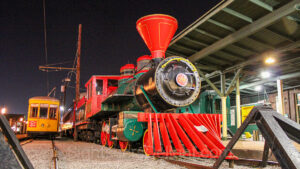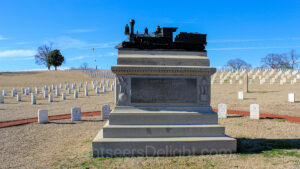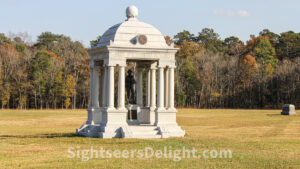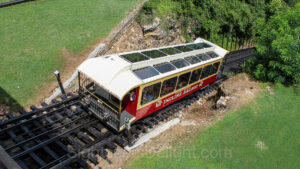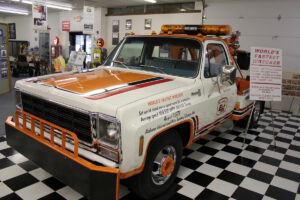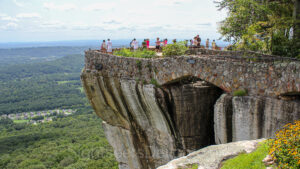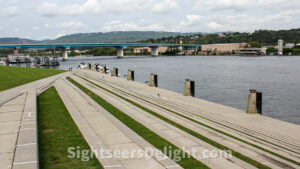The Chattanooga Choo Choo dates to 1909 when it saw the departure of its first passenger train. The Choo Choo served as a functioning train station until Aug. 11, 1970, when the last passenger train departed. The station has since found a new life as a hotel, and guests can stay in either a standard room or in a refurbished rail car. There are plenty of places at the Choo Choo to eat and shop, and a 1924 New Orleans trolley whisks visitors around the hotel’s grounds.
37402
Chattanooga National Cemetery is located near the center of the city of Chattanooga, Tennessee. Administered by the United States Department of Veterans Affairs, it encompasses 120.9 acres and has more than 50,000 interments. The cemetery was established in 1863, by an order from Major General George Henry Thomas after the Civil War Battles of Chattanooga, as a place to inter Union soldiers who fell in combat.
37404
The Chattanooga Whiskey Company was launched in November 2011, but the company initially distilled through contractor MGP of Indiana in Lawrenceburg, Indiana, because of Tennessee laws. In March 2015, after officials changed local laws, the company opened the first legal distillery in Chattanooga since Prohibition.
Chickamauga and Chattanooga National Military Park preserves the sites of two major battles of the American Civil War: the Battle of Chickamauga and the Chattanooga Campaign.
30742
The Hunter Museum of American Art features works representing a range of genres, including American Impressionism, early modernism, regionalism and post World War II modern and contemporary art. The museum, perched on an 80-foot bluff on the edge of the Tennessee River, opened in 1952 and is located in a building represents three distinct architectural stages: the original 1904 classical revival mansion designed by Abram Garfield, the son of president James A. Garfield, which has housed the museum since its opening in 1952, a brutalist addition built in 1975, and a 2005 addition designed by Randall Stout which now serves as the entrance to the museum.
37403
The Lookout Mountain Incline Railway is one of the most popular attractions in Chattanooga. The railroad, which opened on Nov. 16, 1895, is the last reminder of a once vibrant railroad scene that existed on Lookout Mountain. It’s also a great reminder of what a great railroad town (and great town in general) Chattanooga is. Of course, once you take the railroad to the top, you’ll be reminded why Chattanooga is the Scenic City.
37409
Thanks to mechanic Ernest Holmes, Chattanooga is inextricably linked to the world of towing. Holmes invented the tow truck in 1916 in Chattanooga, Tenn. Today, those trucks are indispensable emergency vehicles throughout the world. So, it makes sense the International Towing & Recovery Museum would open here in September 1995. Over its more than 20-year history, the museum has amassed a collection that includes antique and modern tow trucks, photos and related toys. Outside the museum stands the Wall of the Fallen memorial, which includes the names of towers killed in the line of duty.
37408
37350
What is today Rock City has been a popular tourist attraction for years. But, it was until the 1930s that the Rock City of today began taking shape. Frieda Carter, whose husband, Garnet, fashioned one of the country’s first miniature golf courses and a housing development atop Lookout Mountain, built a walkway and rock garden for the people living in the development. To promote the new attraction, which officially opened on May 21, 1932, Carter’s husband hired Clark Byers to paint farmers’ barns – for free, if the barns’ owners would let him paint “See Rock City” on the roof. The campaign worked; the slogan not only helped to draw guests to Rock City, it also became one of the most recognized advertising tag lines of all time. Today, Rock City features winding, garden-lined trails. But, the highlight is Lover’s Leap, a natural overlook where travelers can supposedly see seven states from one spot.
30750
The popular Ross’s Landing sits below the Tennessee Aquarium along the south shore of the Tennessee River. The park is home to a river pier, a marina and a natural amphitheater. The green space is home to several festivals and outdoor concerts. The landing, listed on the National Register of Historic Places, is the last site of the Cherokee’s 61-year occupation of Chattanooga. It is named for John Ross, who served as the Cherokee Nation’s principal chief and is considered to be the embarkation point of the Cherokee removal on the Trail of Tears.
37402

